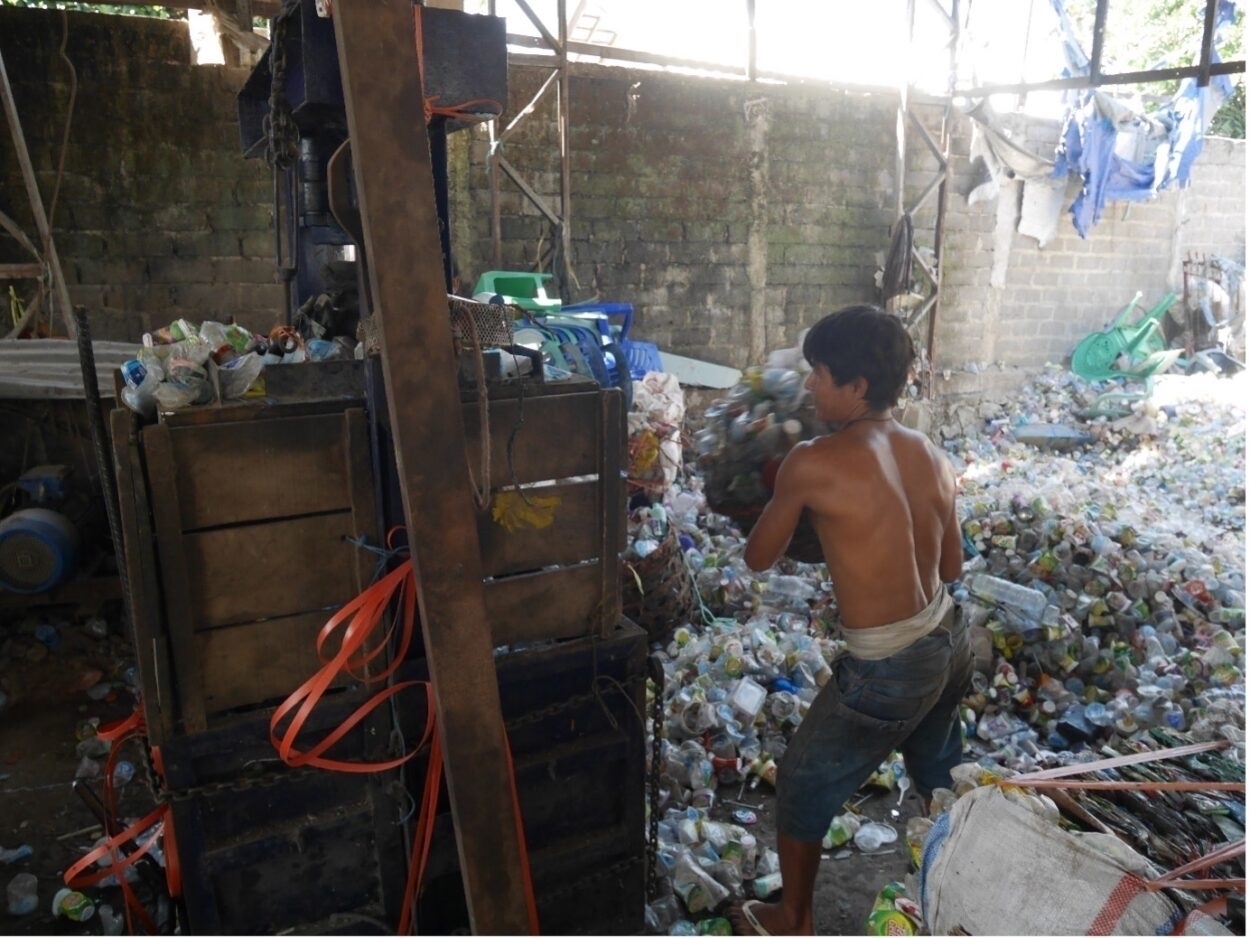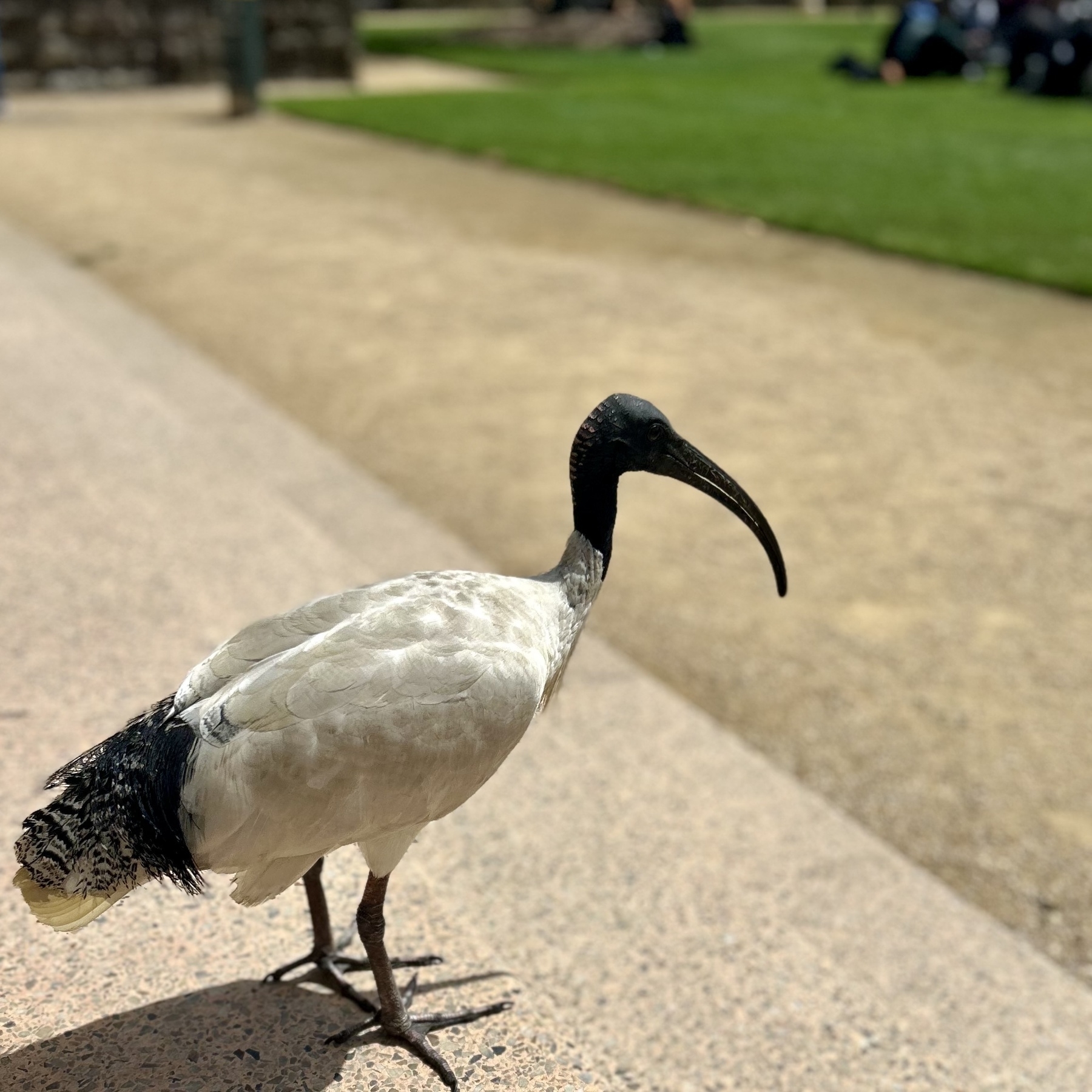Please remember to update your genetic information
Yesterday, a threat actor named ‘Golem,’ who is allegedly behind the 23andMe attacks, leaked an additional 4.1 million data profiles of people in Great Britain and Germany on the BreachForums hacking forum.
This additional leak includes 4,011,607 lines of 23andMe data for people living in Great Britain.
“The amount of plastic on our planet—it’s like one big oil spill.”
To make a bigger difference, the programs need to bring in the “upstream” producers—those that create virgin plastics and polymers, like Exxon, Dow, Sinopec, and Saudi Aramco. An overwhelming 98% of plastics come from fossil fuels, and plastic production and use accounts for 3.4% of humanity’s carbon emissions. Many big plastic producers—such as the world’s biggest, ExxonMobil—are highly entangled with Big Oil or representatives of it. “Beyond a physical pollution crisis, it’s becoming an energy crisis,” says Katrina Knauer, a polymer scientist with the National Renewable Energy Laboratory. “The amount of plastic on our planet—it’s like one big oil spill.”
Jamie's 5 Second Austerity Treats
While the author has clearly been having a bad day, or maybe year, this is an interesting acknowledgement of our material reality:
Jamie’s 5 Ingredient Meals has the air of an educational state broadcast made to raise morale after a national catastrophe – inevitably, perhaps, because that’s more or less what it is.
Jamie’s 5 Ingredient Meals review – his shows get bleaker by the second
Your car may be spying on you using location data, sensors, microphones, cameras and phones
Mozilla warned that manufacturers may collect and commercially exploit much more than location history, driving habits, in-car browser histories, and music preferences from today’s internet-connected vehicles. Instead, some makers may handle deeply personal data, such as – depending on the privacy policy – sexual activity, immigration status, race, facial expressions, weight, health, and even genetic information, the Mozilla team found.
Cars may collect at least some of that info about drivers and passengers using sensors, microphones, cameras, phones, and other devices people connect to their network-connected cars, according to Mozilla. And they collect even more info from car apps – such as Sirius XM or Google Maps – plus dealerships, and vehicle telematics.
Mozilla calls cars from 25 automakers ‘data privacy nightmares on wheels’
"The initial problem raised by Westworld, the ethics of killing virtual beings, thus gives rise to a broader historical inquiry that concerns the inability of human societies to face the past and deal with the images they inherit."
A worthwhile journal article for any Westworld fans, sadly paywalled so let me know if you have trouble accessing it.
Screen Violence from Settler Colonialism to Cognitive Capitalism: Westworld and the Player Piano
The plastipelago: Indonesia’s encounter with the “plasticene” has led to a naïve and hasty government effort to rebrand waste as an asset
This alchemic-like ambition to turn discarded plastics into new objects can also be seen at the hands of government agencies. One such example, is the efforts of the Indonesian Ministry of Public Works and Public Housing (MoPWH) to incorporate discarded single-use plastics into road tar for building national roads in the country. According to Danis Sumadilaga, the head of the Agency for Research and Development at the MoPWH, mixing plastic waste with asphalt will result in stronger and more stable roads.
While it is certainly better to have wild plastic discards sequestered inside a road, rather than scattered in the environment or buried deep inside animals’ entrails, this development undoubtedly erects a speed bump on the road towards the nationwide ban on single-use plastics. In other words, mixing single-use plastics with asphalt makes plastic appear as unproblematic. To return to the concept of Plasticene, the plastic road is representative of both the human alteration—the plastification—of the environment, and the blind assumption that the circular economy can coalesce economic growth with sustainability.

Police, Pokémon Go and an Internal Affairs investigation report called “Dishonesty.pdf"
Two Los Angeles Police Department officers who ignored a robbery in progress in order to catch a Snorlax and Togetic in Pokémon Go also rolled through a stop sign, sped through residential neighborhoods and zoomed over speed bumps, tailgated various cars, and drove the wrong way down a one-way road in order to catch ‘em all
Video Reveals Crucial Details of LAPD Ignoring Robbery to Catch Togetic in Pokémon Go
More people are going to die from heat events, across more regions, at lower temperatures than has previously been assumed
Our research shows that the footprint of life-altering heat using updated, empirically derived heat stress limits is vastly expanded. The additional regions most significantly affected are projected to be the equatorial and Sahel regions of Africa and eastern China given future warming scenarios that reach upward to 2 °C, a viable outcome by the end of the century, perhaps sooner, without drastic reductions in greenhouse gas emissions (31). Continued warming above 3 °C and 4 °C, respectively, causes North and South America, as well as northern Australia, to experience extended periods of dangerous heat.
Being respected and listened to are the key to happiness at work - and not just for librarians
Library staff morale is impacted mostly by staff members’ sense of connection, respect, and value within the institution and among their librarian colleagues, direct managers, and library administration. Having pathways for advancement and professional development, meaningful opportunities to contribute to institutional decision-making, and autonomy over their professional and personal lives contributed to a higher sense of staff morale.
Library Staff Morale Correlates with Having a Sense of Respect and Value for Their Work, Relationship to Direct Supervisors and Colleagues, and Autonomy and Flexibility in Their Work Environments via The Venerable Hugh
Unsettling ‘The Settler’
Decolonisation, they famously argue, is not a metaphor but a material set of actions, hard-won through struggles for sovereignty, land, power. This decolonial work, we argue, can only take place if the settler is also understood through their material complexity, rather than approached as a loose signifier.
"Which makes it genuinely baffling that Northeastern's Senior Vice Provost for Research decided to install under-desk heat sensors throughout the Cybersecurity and Privacy Institute, overnight, without notice or consultation
This is a hell of a post from Doctorow:
What’s the “shitty tech adoption curve?” It’s the process by which oppressive technologies are normalized and spread. If you want to do something awful with tech – say, spy on people with a camera 24/7 – you need to start with the people who have the least social capital, the people whose objections are easily silenced or overridden.
That’s why all our worst technologies are first imposed on refugees -> prisoners -> kids -> mental patients -> poor people, etc. Then, these technologies climb the privilege gradient: blue collar workers -> white collar workers -> everyone. Following this pathway lets shitty tech peddlers knock the rough edges off their wares, inuring us all to their shock and offense.
Northeastern’s Interdisciplinary Science and Engineering Complex (ISEC) is home to the “Cybersecurity and Privacy Institute,” where grad students study the harms of surveillance and the means by which they may be reversed. If there’s one group of people who are prepared to stand athwart the shitty tech adoption curve, it is the CPI grad students.
Which makes it genuinely baffling that Northeastern’s Senior Vice Provost for Research decided to install under-desk heat sensors throughout ISEC, overnight, without notice or consultation.
Read on for a great tale about surveillance, low-key resistance and “listening sessions”.
“Don’t spy on a privacy lab” (and other career advice for university provosts)
<img src=“https://cdn.uploads.micro.blog/663/2023/sensor-art.jpeg.webp" width=“450” height=“600” alt=“Under-desk heat sensors that have been arrayed on a sheet of paper to spell the word “No”.">
Replika chatbot encouraged a man who wanted to kill the Queen. Now he's serving a nine year sentence.
On Thursday, 21-year-old Chail was given a nine-year sentence for breaking into Windsor Castle with a crossbow and declaring he wanted to kill the Queen.
Chail’s trial heard that, prior to his arrest on Christmas Day 2021, he had exchanged more than 5,000 messages with an online companion he’d named Sarai, and had created through the Replika app.
The surprisingly long life of paper straws
The presence of PFAS in plant-based straws shows that they are not necessarily biodegradable and that the use of such straws potentially contributes to human and environmental exposure of PFAS.
An August DeSmog investigation described a Shell-sponsored video from one popular feel-good account as “part of a concerted push from oil and gas supermajors to improve their image among younger generations. Edelman, one of Shell’s principal PR agencies, said in relation to a 2017 campaign that the oil and gas giant set the task of ‘giving millennials a reason to connect emotionally with Shell’s commitment to a sustainable future.’”
After decades of climate deception, Shell uses Fortnite to court demographic most concerned about climate change via Ketan
In defence of “what if?”
We live in a world not of ambitions achieved completely and plans that reliably follow a straight line but of zigs and zags; of vast schemes that come to nothing or, perhaps more often, get far enough to shape the next cycle of ambition and action before their own demise.
Hokusai and Contemporary Art: Pop Art, Superflat, and Beyond
Talk delivered by Kendall deBoer, curatorial assistant, Department of Contemporary Art, Museum of Fine Arts, Boston.
Wednesday, May 31, 2023
Image by Yoshitomo Nara

A red s̶u̶n̶ pill rises in the east
A couple of months before he was arrested, Tate converted to Islam. This was a shock to some of his most ardent supporters in the west… But the move was perhaps not as surprising as it first might have seemed. By converting to Islam, facilitated by well-known conservative Muslim influencers Mohammed Hijab and Ali Dawah, Tate had opened up the online Red Pill movement to non-white and non-western people, giving them space in a movement that once saw Muslims, along with feminists, as their ideological enemies.
…“His appeal is just a very simple mix of misogyny and aspiration… It’s very seductive to tell young men in the global south that hating women and mistreating them and, in Tate’s case, literally allegedly trafficking them, is the secret to a successful life. It’s classic fascism, but because it’s cloaked into a cartoonish macho man aesthetic and not directly linked to any particular politics, we don’t treat it as such.”


